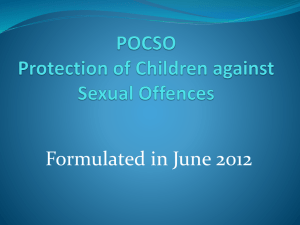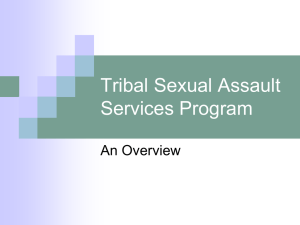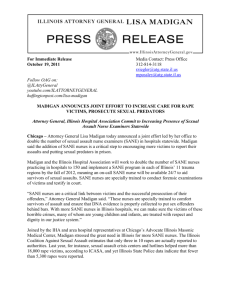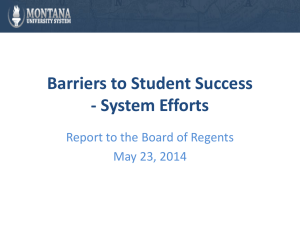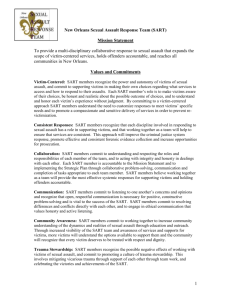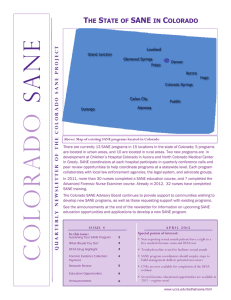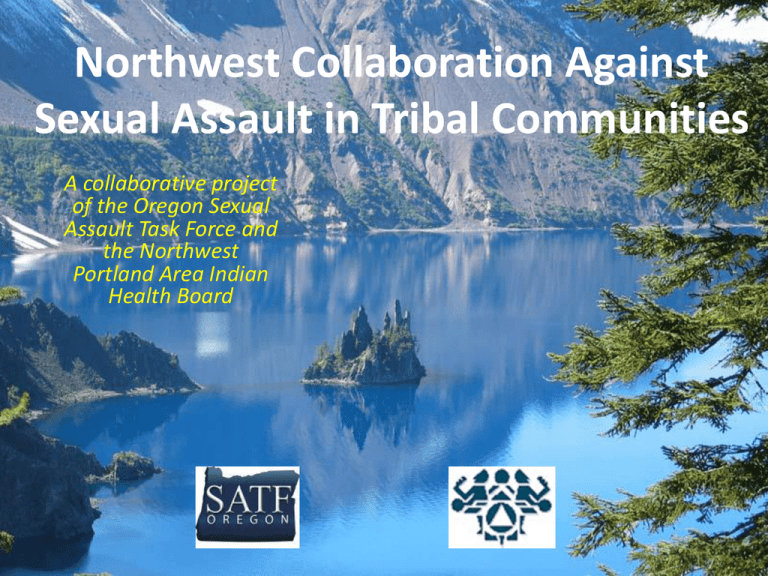
Northwest Collaboration Against
Sexual Assault in Tribal Communities
A collaborative project
of the Oregon Sexual
Assault Task Force and
the Northwest
Portland Area Indian
Health Board
Collaborative Beginnings
Two organizations, each with a
different focus, but
complementary goals
Oregon Sexual Assault Task Force
• Private, non-profit statewide organization
• Mission: effective prevention of and response to sexual
violence through collaborative, comprehensive, survivorcentered strategies
• Programs: SATI, SANE, Prevention, Policy/Legislation
• Task Force Advisory Committee Members appointed
from across state to one of 8 subcommittees:
– Campus, Criminal Justice, Legislative and Public Policy,
Medical Forensic, Men’s Engagement, Offender
Management, Prevention and Education, Victim
Response
Northwest Portland Area
Indian Health Board
Established in 1972, the
Northwest Portland Area Indian
Health Board is a non-profit tribal
advisory organization serving the
forty-three federally recognized
tribes of Oregon, Washington,
and Idaho. Each member tribe
appoints a Delegate via tribal
resolution, and meets quarterly
to direct and oversee all activities
of NPAIHB.
National Institute of Justice Grant:
Purpose of Funding
“To increase the number of no-cost educational
opportunities for public crime laboratory
personnel and practitioners in forensic science
disciplines and provide forensic science training
to other relevant criminal justice partners and
professionals involved in treating victims of
sexual assault.”
- FY2011 Solicitation, NIJ Forensic Science Training Delivery and Research Program
Project
•Adapt existing SANE and SART curricula to be
Tribally specific;
•Provide SANE training to nurses working with
Tribes; and
•Provide training to Tribal community
collaborative groups to address sexual assault.
•For Washington, Oregon and Idaho.
Why this project?
• Native American and Alaska Native
women are 2.5 times more likely
than non-Native women to be
sexually assaulted.
• “A Hidden Epidemic” - Sexual
assault is notoriously
underreported.
• Only 134 certified SANEs in the
three states – one SANE for every
1,816 miles and every 89,552
people. Most of these SANEs (105)
are in Oregon.
Why this project?
• SANE programs benefit rape survivors’
psychological well-being and improve overall
prosecution rates for sexual assault.
• Primary strategy shown to be effective in
addressing sexual assault is a coordinated,
multidisciplinary response (SARTs).
3 Goals
• Sexual Assault Nurse Examiner
Training: 40 hours
• Advanced Sexual Assault Nurse
Examiner Training
• SARRC Training
Project Goals 10/1/2011 – 9/30/2014
GOAL 1
• Train Sexual Assault Nurse Examiners from tribal
communities in Washington, Oregon and Idaho. We
will accomplish this by providing three in-person, 40hour didactic SANE trainings.
GOAL 2
• SANE Certification: We
will hold a total of
nine Advanced SANE
trainings, using a
simulation mannequin
to assist with learning
proper examination
and forensic evidence
collection techniques.
• Ongoing technical
assistance to trained
SANEs.
GOAL 3
• Sexual Assault Response & Resource Team
Trainings: a total of three two-day trainings. We will
discuss and work towards step-by-step development in
each team’s community .
• Ongoing technical assistance via quarterly web-based
meetings.
Anticipated Outputs
• Train 50 SANEs and 70 SART members.
• Advance the knowledge in the field in regards to
forming, maintaining, and sustaining SARTs and SANE
programs in Indian country by learning from a
diverse collection of sovereign nations.
Curriculum Review Board
A group of tribal representatives with
knowledge and expertise of their communities
around the area of sexual assault brought
together to modify an existing curriculum and
brainstorm around the development of a tribal
specific sexual assault response.
Sexual Assault Response and Resource Circles
(SARRC) Training May 2-3, 2012
Three Northwest Tribal SARRC teams,
including Tulalip
Next SARRC Training: March 2013
• Sexual Assault Nurse Examiner (SANE) Training
in September 2012
• 21 nurses from 14 tribes (3 from Tulalip)
• Next: Advanced Training and Mock
Examinations
Other Resources for SART/SANE
Training/Technical Assistance
• Red Wind Consulting
• Training on SART development
• Currently working on Tribal Sexual
Assault Medical Forensic
Examination Protocol
• International Association of
Forensic Nursing
• IHS SART and SANE Training for
all IHS hospitals
Thank you!
Christine Herrman, JD
Executive Director
Oregon Sexual Assault Task Force
3625 River Rd. N., Suite 275
Keizer OR 97303
(503)990-6541
christineherrman@oregonsatf.org

